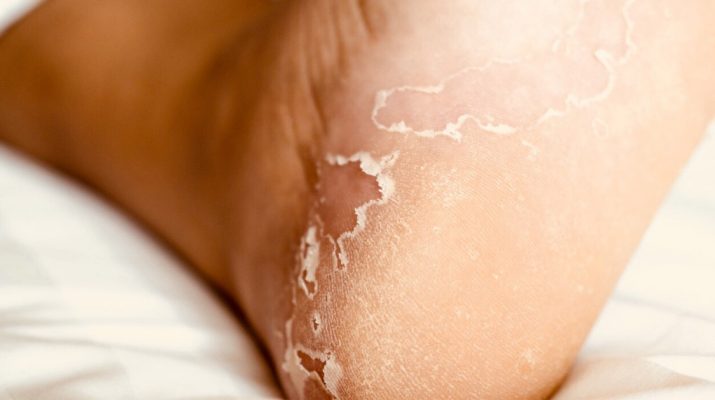Our body always sends messages that signal its current condition, so if we learn to listen to them, we will be able to treat health issues on time and ensure our wellbeing.
Elson M. Haas, MD, a San Rafael, Calif., physician with a natural-medicine approach and author of Staying Healthy with Nutrition (Celestial Arts, 2006) says:
“Physical signs and symptoms are ways your body tries to alert you to deeper imbalances. Taking the time to decipher the body’s codes is always better than simply popping a pill and hoping the symptoms just go away. Ideally, we want to get to the causes of problems, not just suppress the end result of ill health.”
Additionally, Vivian Goldschmidt, MA, explains:
“You may not have thought about this before, but the way you feel on a given day is actually your body talking to you. Whether you know it or not, your body responds to everything you encounter, day in and day out.
For example, you might have a headache. For many, that means turning to some sort of over-the-counter pain killer so that you don’t have to stop your daily activities, and the cause of the headache is not really considered. But a headache is not normal.
It’s your body telling you that something isn’t right. A headache can mean your muscles are tense, you’re dehydrated, or that you aren’t sleeping enough – these are just a few examples. And the pain-killer approach never takes care of the problem that caused the headache to begin with.
If you take a moment to focus on your body, you may be surprised by what you discover. Just taking a minute to listen to your body’s needs can reveal a lot about how you’re reacting to your environment, diet, and other factors.”
Here are 21 things our body is trying to tell about our health:
1. Abnormal sweat smell- If it smells like acetone, you might experience issues with the blood sugar, and ammonia odor might indicate kidney or liver issues
2. Pungent urine or stools- Smelly stools might indicate a lactose intolerance, while the chemical smell of the urine can indicate a urinary tract infection, usually due to the E. coli bacteria
3. Dry skin– Chronic dry skin can be a symptom of diabetes, nutrient deficiencies, and hypothyroidism
4. Puffy eyes- This is a symptom of excess stress or a lack of sleep, as well as hormonal changes and salt intake
5. BMI- the chance of developing dementia in people in their 40s, whose abdomen is on the large side, is up to 3.6 times more likely than their smaller waisted peers
6. Swollen feet- This is usual in pregnant women and people who spend many hours on their feet, but if these are not the causes, this might indicate fluid retention
7. Pale tongue- This could a symptom of an iron deficiency
8. Longer ring fingers in women- Women whose ring fingers are longer than the index fingers have an increased risk of developing osteoarthritis in the knees
9. Abnormal hair growth- The growth of hair on areas where it typically does not in women is a sign of issues like polycystic ovarian syndrome, due to the increased production of male hormones
10. Cracked, dry lips- they are a sign of dehydration or an allergic reaction caused by lip cosmetics, medications, dental hygiene products, metals, and foods
11. Dark velvety skin patches- This can signal a medication reaction or pre-diabetes
12. Smaller calves in women- This might be a sign of a higher risk of stroke, due to the development of carotid plaques
13. Loss of eyebrow hair- This is a sign of a thyroid disease
14. Stinky feet– You might suffer from Athlete’s foot if your feet smell even though you keep proper hygiene and constantly keep your shoes and socks clean
15. Blood type: People with type O blood, either negative or positive, have a lower risk of pancreatic cancer
16. Stunted or uneven teeth- This might be a result of the habit of grinding the teeth while sleeping, usually associated with increased stress.
17. Height- Short people tend to live longer, which is believed to be due to the fact that one of the genes responsible for short stature is also partly responsible for longevity
18. Premature facial wrinkles- If you notice wrinkles while in early menopause, you might experience issues with the bone mineral density
19. Breast size-Women whose breasts are a D cup or larger when they were age 20 have an elevated risk of type 2 diabetes, which is believed to be due to the hormonally sensitive fat in the breasts
20. Shorter arms- Women with shorter arms, 60inches or less, are up to 1.5 times more prone to Alzheimer’s disease
21. Nail issues- Side-to-side lines on the nails indicate stress, white spots or streaks, and ridged nails might be a sign of kidney disease, and small cysts around the cuticles might signal arthritis
You should never ignore the signals your body sends since they directly reflect your state of health. If you experience problematic changes, always schedule an appointment with your doctor.

